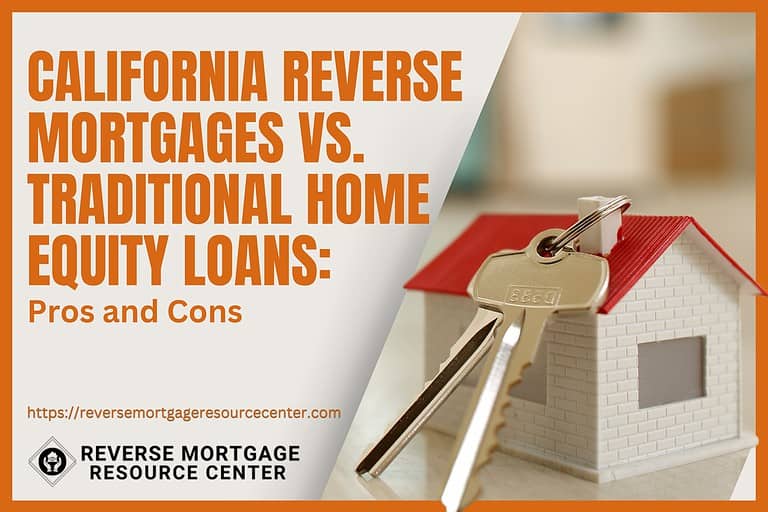Reverse Mortgages and Tax Considerations in California
As seniors embark on their golden years, financial challenges can cast a shadow over the retirement dream. One avenue worth exploring is the reverse mortgage, a financial tool designed to provide homeowners with a readily available source of funds while allowing them to stay in their homes. However, the landscape of reverse mortgages is intricate, especially regarding tax considerations in California. This article aims to shed light on the intersection of reverse mortgages and taxes, offering valuable insights to seniors navigating the complexities of their financial landscape.
Understanding Reverse Mortgages
The Basics
A reverse mortgage is a loan that allows homeowners aged 62 or older to convert a portion of their home equity into readily accessible funds. Unlike a traditional mortgage, where homeowners make monthly payments to a lender, a reverse mortgage disburses money to the homeowner. The loan is repaid when the homeowner sells the home, moves out of the home, or passes away.
Types of Reverse Mortgages
In California, seniors can choose from several types of reverse mortgages. The most common is the Home Equity Conversion Mortgage (HECM), which is insured by the Federal Housing Administration (FHA). Proprietary reverse mortgages and single-purpose reverse mortgages are also available, each with its own set of terms and conditions.
Tax Considerations for California Seniors
Federal Tax Implications
Non-Taxable Income
The funds received from a reverse mortgage are generally considered loan proceeds rather than income. Therefore, they are not subject to federal income taxes. This non-taxable characteristic can be a lifeline for seniors seeking access to funds without the burden of increased tax liabilities.
Capital Gains and Inheritance
One of the advantages of a reverse mortgage is that it doesn’t impact Social Security or Medicare benefits. Furthermore, the loan proceeds are not considered taxable income and don’t affect Medicaid eligibility. Additionally, capital gains taxes on the home are typically deferred until the home is sold.
California-Specific Tax Considerations
Property Tax Implications
California’s property tax laws are unique, and understanding how a reverse mortgage affects property taxes is crucial. Proposition 13 limits property tax increases to 2% per year based on the original purchase price. Fortunately, receiving funds from a reverse mortgage doesn’t trigger a reassessment for property tax purposes. This means seniors can tap into their home equity without higher property tax bills.
State Income Tax
California does not tax Social Security benefits, but other sources of retirement income may be subject to state income tax. Reverse mortgage proceeds are not considered income for state tax purposes, offering another layer of financial relief for California seniors.
Medi-Cal Considerations
For seniors concerned about long-term care and potential Medi-Cal eligibility, it’s essential to understand how a reverse mortgage may impact these considerations. While reverse mortgage payments generally do not count as income for Medi-Cal purposes, a lump sum from a reverse mortgage could affect eligibility. Seniors should consult with a Medi-Cal planning professional to ensure a comprehensive understanding of their specific situation.
Strategic Planning for Seniors
Financial Planning
Before diving into a reverse mortgage, it’s essential for seniors to engage in comprehensive financial planning. This includes evaluating current expenses, estimating future needs, and understanding the long-term implications of a reverse mortgage on their overall financial picture. Consulting with a financial advisor can provide personalized guidance tailored to individual circumstances.
Estate Planning
Seniors should also consider the impact of a reverse mortgage on their estate plans. While the loan is due when the last borrower moves out of the home or passes away, heirs have options for repaying the loan, including selling the home or obtaining a traditional mortgage. Open communication with family members about these plans can help ensure a smooth transition.
The Role of Reverse Mortgages in Retirement
Supplementing Retirement Income
Many seniors face the challenge of insufficient retirement savings. A reverse mortgage can serve as a valuable tool to supplement income, providing a reliable stream of funds without the need to sell the home or downsize.
Age in Place with Financial Security
A significant concern for seniors is the ability to age in place, maintaining independence and quality of life. Reverse mortgages empower seniors to stay in their homes while alleviating financial stress. The funds received can cover essential expenses, home repairs, or healthcare costs.
Flexibility in Fund Utilization
Unlike some financial instruments with restrictions on fund usage, reverse mortgage proceeds can be used at the homeowner’s discretion. Whether it’s paying off existing debts, funding home renovations, or covering healthcare expenses, the flexibility of a reverse mortgage provides financial freedom.
Final Thoughts
Reverse mortgages can be a powerful financial tool for California seniors facing economic challenges in retirement. By tapping into home equity without triggering certain taxes, seniors can access a steady source of money while maintaining the comfort and familiarity of their homes. However, seniors must approach reverse mortgages with a clear understanding of the associated tax considerations.
By integrating these financial tools thoughtfully into their overall retirement strategy, seniors can unlock a pathway to financial freedom in their golden years. With careful planning, comprehensive knowledge, and the guidance of financial and tax professionals, California seniors can navigate the complex terrain of reverse mortgages, ensuring a secure and comfortable retirement. The strategic use of reverse mortgages can be a cornerstone in achieving financial security and peace of mind during the later stages of life.
REVERSE MORTGAGE RESOURCE CENTER ~LIVE LIFE ON YOUR TERMS~
Our Lending Team has been serving our clients since 2004. We are passionate about serving our clients with integrity to help them achieve their financial goals.







